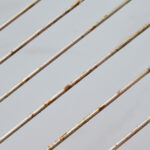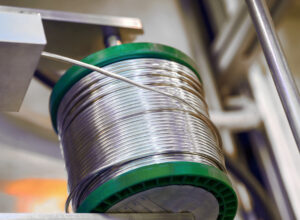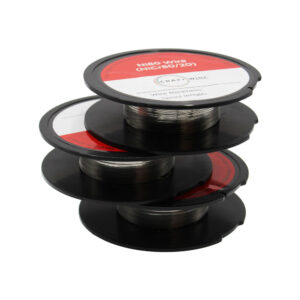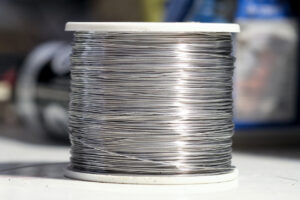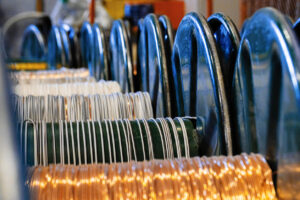When it comes to choosing materials for various engineering and manufacturing projects, the decision often boils down to properties that will best fit the application’s requirements. In the realm of metal wires, two popular choices are copper wire and brass wire. Both materials are prized for their unique characteristics, but how do they compare when it comes to malleability and machining? This detailed examination of copper wire vs brass wire will explore their properties, uses, and how they stand up to processes like bending, shaping, and cutting.
Introduction to Copper Wire vs Brass Wire
Copper Wire: Copper is a soft, malleable, ductile metal with very high thermal and electrical conductivity. Copper wire is widely used in electrical applications, such as electrical wiring, motors, and generators. It’s also favored for its excellent conductivity and ability to be drawn into fine strands.
Brass Wire: Brass is an alloy of copper and zinc, with proportions of zinc varying to create a range of brasses with varying properties. Typically, brass wire is harder and stronger than copper but still maintains good malleability and corrosion resistance. Brass wire is commonly used in decorative applications, jewelry making, and in musical instruments, among other uses.
Malleability Comparison
Malleability is a material’s ability to deform under compressive stress, which is a crucial factor in choosing wire for specific applications. This characteristic determines how easily a metal can be hammered, pressed, or rolled into thin sheets without breaking.
Copper Wire
Copper ranks high on the scale of malleability. This intrinsic property makes it ideal for applications that require the metal to be shaped into complex or fine shapes, especially in the electronics industry. The ability of copper wire to bend easily without breaking is a significant advantage when installing wiring in confined spaces or around multiple bends.
Brass Wire
Brass generally has good malleability, but it is less malleable than copper due to the presence of zinc, which makes the alloy harder. The exact malleability of brass wire can vary depending on the amount of zinc present; lower zinc content typically means higher malleability. Brass is often used where moderate malleability is needed along with the ability to withstand wear and tear, making it suitable for decorative trims, architectural details, and components where aesthetics are important.
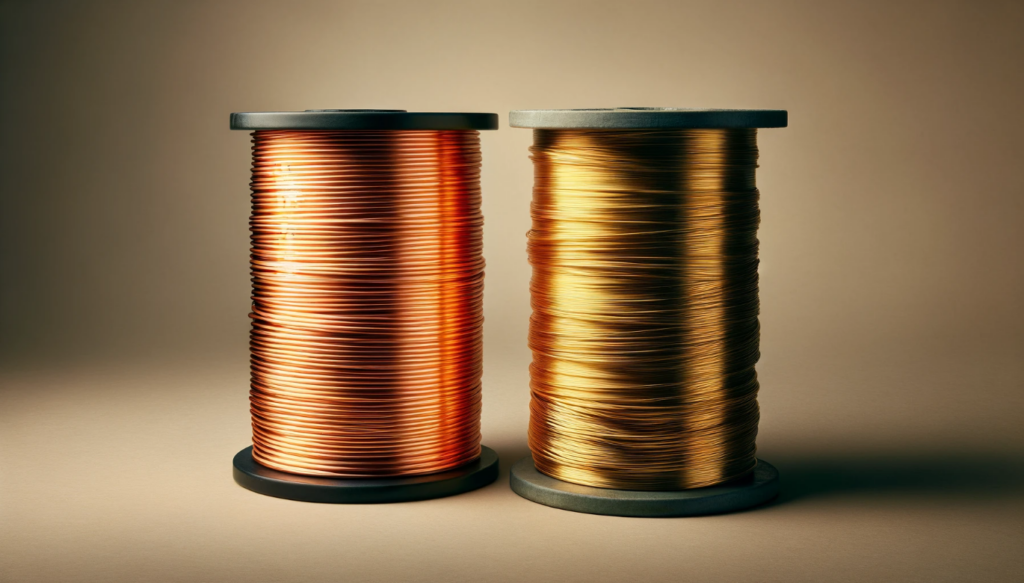
Machinability Comparison
Machinability refers to the ease with which a material can be cut or shaped by machining, which includes processes like milling, turning, and drilling. This property is critical in manufacturing, where materials are regularly shaped and sized by machine tools.
Copper Wire
Copper’s softness can be a double-edged sword in machining. While it is easy to cut due to its softness, it can also lead to issues such as burring or distortion during machining operations. Special care needs to be taken, and often, specialised cutting tools are used to machine copper effectively. Despite these challenges, copper’s excellent thermal conductivity makes it easier to manage the heat generated during machining, reducing the risk of damage to the piece being worked on.
Brass Wire
Brass is often preferred for machining over copper because it produces fewer burrs and can be machined at high speeds, which makes it highly efficient for high-volume production runs. The presence of zinc makes brass harder than pure copper, which helps in maintaining the integrity of the detail during machining operations. Additionally, brass does not generate sparks when machined, which is an important safety factor in certain industrial environments.
Applications Based on Malleability and Machining
The choice between copper wire and brass wire often comes down to the specific requirements of the application.
Applications Favouring Copper Wire:
- Electrical wiring and components due to its superior conductivity.
- Artistic uses where extensive bending and shaping are required.
- Situations where the wire needs to be extremely thin or fine.
Applications Favouring Brass Wire:
- Components requiring good machinability without sacrificing too much malleability.
- Decorative items where a gold-like appearance is desirable.
- Settings where low friction and wear resistance are needed, such as in locks and gears.
Pros and Cons of Copper Wire vs Brass Wire
Here’s a table summarising the pros and cons of brass vs copper wire:
| Property | Brass Wire | Copper Wire |
|---|---|---|
| Pros | – Good machinability | – Excellent electrical conductivity |
| – Higher strength and hardness than copper | – High malleability | |
| – Good corrosion resistance | – Good thermal conductivity | |
| – Does not produce sparks when machined | – Easily drawn into fine wires | |
| – Aesthetic appeal (gold-like appearance) | – Flexibility, easy to bend without breaking | |
| Cons | – Less malleable than copper | – Softer, can lead to issues like burring in machining |
| – Lower electrical and thermal conductivity than copper | – Can be more expensive than brass | |
| – Can tarnish over time if not properly treated | – Prone to corrosion if not properly coated or treated |
When comparing copper wire vs brass wire, the choice will largely depend on the specific needs of your project. Copper’s outstanding electrical conductivity and malleability make it ideal for electrical applications and intricate designs. In contrast, brass offers enhanced strength and machinability, making it suitable for decorative and mechanical components.
Understanding the properties of each material allows engineers and designers to make informed decisions that balance performance, aesthetics, and cost. Whether choosing copper for its superb malleability or brass for its machining advantages, both materials offer unique benefits that can be tailored to meet the demands of various applications.
We also offer a massive range of stainless steel wire and nichrome wire through our store. Choose the wire that you want to work with and we’ll get spooling.
If you’re interested in learning more about wire, check out our other blog on Everything You Need to Know About Wires.
We are also proud to supply this product on our highly popular eBay store, check us out there too.
Thank you for checking out our site.
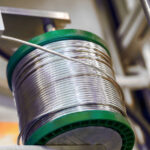
Nichrome Wire Safety: Top Tips for Working Safely
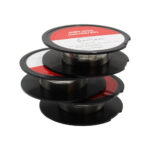
Best Wire for Electronics Projects
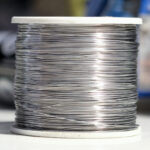
Is Ni80 Wire Suitable for DIY Heating Elements

Wire Grades Explained
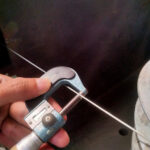
How Wire Diameter Affects Strength and Flexibility
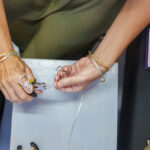
How to Cut and Shape Wire for Custom Applications

Can Wire Be Used in 3D Printing?

How Wire Composition Affects Conductivity
